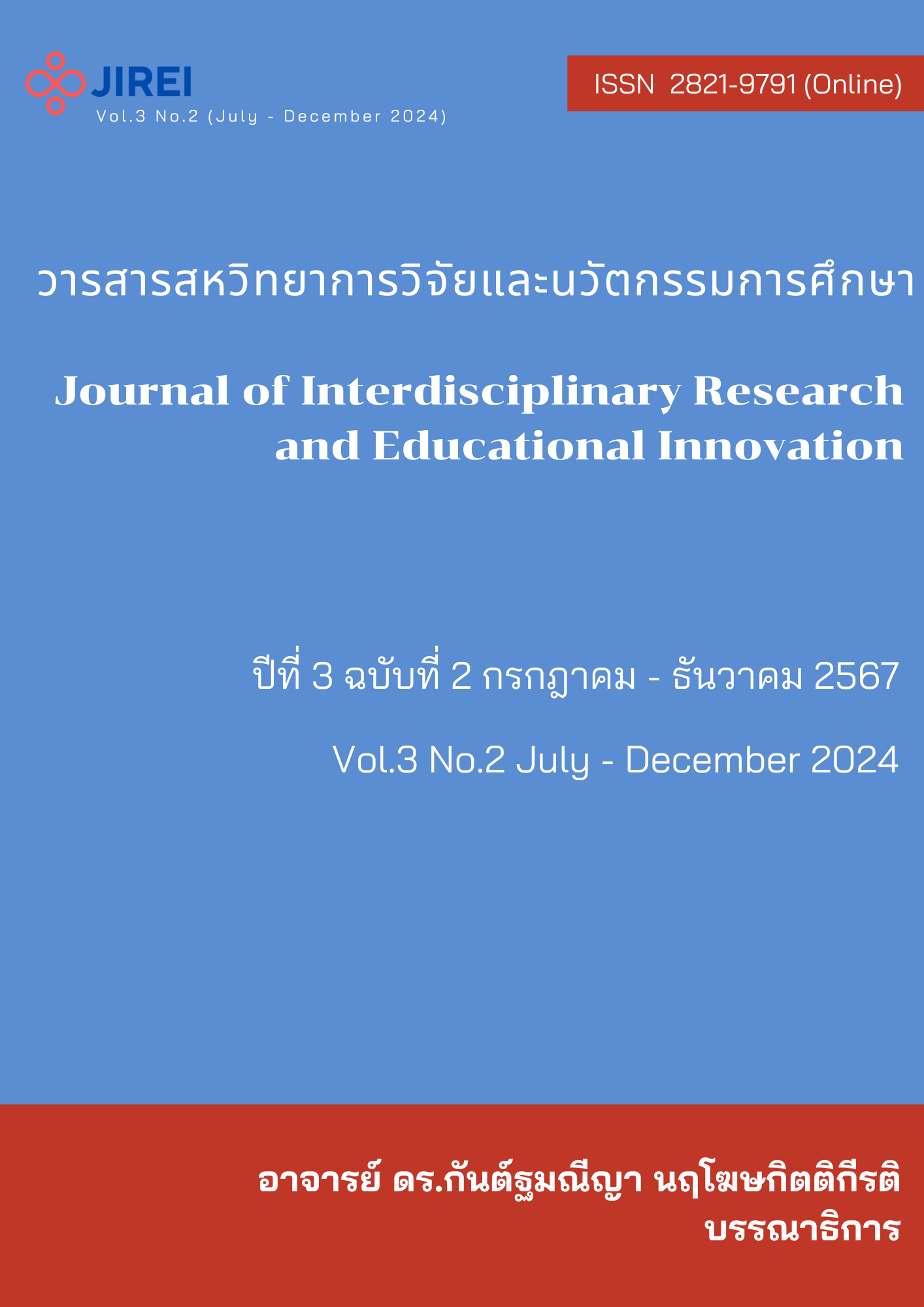พลังอ่อนโยน (Soft Power) : กลยุทธ์ของภาวะผู้นำในยุคปัญญาประดิษฐ์ (Artificial Intelligence: AI)
คำสำคัญ:
พลังอ่อนโยน, กลยุทธ์, ภาวะผู้นำ, ยุคปัญญาประดิษฐ์บทคัดย่อ
ภาวะผู้นำในยุคปัญญาประดิษฐ์ควรใช้พลังอ่อนโยนเป็นกลยุทธ์ในการบริหารงานให้ประสบผลสำเร็จ เพราะถือว่ามีความสำคัญต่อองค์กรหรือประเทศ ทำให้เกิดประสิทธิผลอย่างยั่งยืน และสร้างชื่อเสียงในด้านคุณภาพของผลผลิตและบริการ เสริมสร้างภาพลักษณ์บนเวทีระหว่างประเทศ ตลอดจนเสริมสร้างคุณค่าทางสังคม เศรษฐกิจ การเมืองและการศึกษา โดยเน้นส่งเสริมทางวัฒนธรรม อาหาร ภาษา วิถีชีวิต และสถานที่ท่องเที่ยว โดยกลยุทธ์พลังอ่อนโยนของภาวะผู้นำ ได้แก่ การใช้เทคโนโลยี AI การคิดสร้างสรรค์ ความฉลาดทางอารมณ์ การสร้างแรงบันดาลใจ มนุษยสัมพันธ์ ความเห็นอกเห็นใจ ความไว้วางใจ การทำงานเป็นทีม และการคิดแบบพัฒนา
เอกสารอ้างอิง
Babiracki, Patryk. (2015). Soviet soft power in Poland: culture and the making of Stalin's new
empire, Chapel Hill: The University of North Carolina Press.
Blondheim, Menahe & Segev, Elad. (2015). Just Spell US Right: America's News Prominence
and Soft Power. Journalism Studies, 18 (9), 1128–1147.
Brannagan, Paul Michael & Giulianotti, Richard. (2018). The soft power–soft disempowerment
nexus: The case of Qatar. International Affairs, 94 (5), 1139–1157.
Creative Economy Agency. (2024). Soft Power เครื่องมือสำคัญในการผลักดันเศรษฐกิจสร้างสรรค์
ไทย. สืบค้นจาก https://www.cea.or.th › single-research › cea-soft-power.
Felix, Loy. & Williams, M.J. (2007), Power in World Politics. New York : Routledge.
Fraser, Matthew. (2005). Weapons of Mass Distraction: Soft Power and America Empire.
New York : St. Martin's Press.
Gallarotti, Giulio. (2010). Cosmopolitan Power in International Relations: A Synthesis of Realism,
Neoliberalism, and Constructivism. New York: Cambridge University Press.
Gupta, Amit Kumar. (2023). Re-examining the Concept of Soft Power and Initiating a Debate on
How to Define the Concept from the Negative and Positive Connotations.Soft Power, Journal of Historical and Theoretical Studies of Politics and Law, 10 (1), 164–187.
Hirsch, Arlene S. (2024). How to 'Soft Power' Your Way to a Senior Leadership
Role. Retrieved from https://www.shrm.org › news › how-to-
Iwabuchi, Koichi. (2002). Recentering Globalization: Popular Culture and Japanese Transnationalism. London : Duke University Press.
Kobierecki, Michal, Marcin. ( 2020). Aviation diplomacy: a conceptual framework for analyzing
the relationship between aviation and international relations. Place Branding and Public Diplomacy, 17 (4), 293–303.
Kurlantzick, Joshua. (2007). Charm Offensive: How China's Soft Power Is Transforming the
World. London : Yale University Press.
Lilian, Ji & Gary, Rawnsley. (2023). The Routledge Handbook of Soft Power.
New York: Routledge.
Lord, Carnes. (2008). Public Diplomacy and Soft Power Strategic Influence: Public Diplomacy,
Retrieved from content/themes/softpower/pdfs/the_soft_power_30.pdf.
Manners, Ian. (2002). Normative Power Europe: A Contradiction in Terms?. Journal of Common
Market Studies, 40(2), 235–258.
Mattern, Janice Bially. (2005). Why Soft Power Isn't So Soft: Representational Force and the Construction of Attraction in World Politics. Journal of International Studies, 33 (3), 583–612.
Nye, Joseph S. (2014). Soft Power: The Means To Success In World Politics. New York:
PublicAffairs.
Nye, Joseph S. (2008). The Powers to Lead. New York :Oxford University Press.
Oleg Gelikh. (2019). Leadership, Soft Power and Social Power, Sustainable Leadership for Entrepreneurs and Academics, 2(3),43-55.
Onuf, Nicholas. (2017). The power of metaphor/the metaphor of power. The Journal of
International Communication, 23 (1),1–14.
Portland Communications. (2016). The Soft Power 30 Report, Retrieved
from http://softpower30.portland-communications.com/wp-.
Siniver, Asaf & Tsourapas, Gerasimos. (2023). Middle Powers and Soft-Power Rivalry: Egyptian–
Israeli Competition in Africa. Foreign Policy Analysis, 19 (2),103-119.
Tella, Oluwaseun. (2016). Wielding soft power in strategic regions: an analysis of China's power
of attraction in Africa and the Middle East. Africa Review, 8 (2): 133–144.
Tsourapas, Gerasimos. (2018). Authoritarian emigration states: Soft power and cross-border
mobility in the Middle East. International Political Science Review, 39 (3): 400–416.
Yano, Christine R. (2009). Wink on Pink: Interpreting Japanese Cute as It Grabs the Global Headlines. The Journal of Asian Studies, 68 (3), 681–688.





